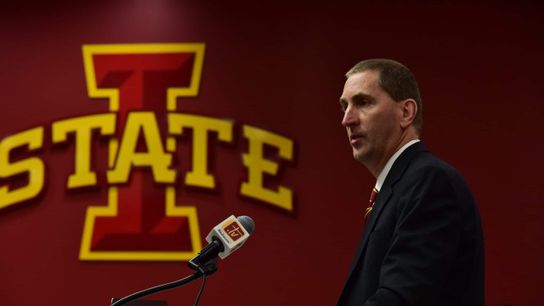I'm not a person with very many strong opinions in life, but one of them is this: As the money continues to grow in college sports, the ruling establishment needs to give on some small-scale changes now before a wholesale revolution is forced upon them down the road. I've written as much on this site before.
On Tuesday, it was reported that the Big 12 has authored a proposal that would drastically change the transfer protocol in college sports. At the top of the list of possible changes is that any student-athlete would be able to transfer and play immediately in the event their head coach leaves or is fired. The other headline-grabbing change was that athletes would no longer need the permission of their current schools to transfer and receive a scholarship elsewhere.
Those are major changes, but they're still a step behind the most radical change floating through the NCAA's legislative system -- one that would make all athletes eligible to transfer and play immediately. Period. It's a thought that has high-profile support and one that has yet to be totally dismissed.
On the Heartland College Sportspodcast, Iowa State AD Jamie Pollard (Iowa State and Baylor's FARs authored the proposal, but Pollard said the entire effort is a conference-wide initiative) essentially made that argument, that, yes, this proposal is a drastic change from the status quo, but it's not the biggest possible change out there.
"I'm not saying it's perfect. No one's saying it's perfect," Pollard said, "but if we as an industry don't come up with something, the other is going to happen, and the other has no regard for (a year in residency requirement) and the whole team could transfer and be eligible at another institution immediately. We have to be careful here that we don't overthink it. What we've tried to do is think about the high-level examples of situations where there's clearly been angst nationally where a student-athlete was blocked from transferring to a particular school or a coach left but the student-athletes couldn't leave."
One example Pollard could be alluding to is former Kansas State wide receiver Corey Sutton, who was originally denied permission to transfer to any of the 35 schools he submitted to K-State. Sutton became a martyr for the mistreated athlete in the media, and Kansas State quickly reversed course with an egg on its face. Another example would be Baker Mayfield, who was famously blocked from being eligible to receive a scholarship at Oklahoma despite the fact he didn't receive a scholarship at his original school, Texas Tech.
The Big 12's proposal includes a specific clause to eliminate that possibility in the future.
Pollard also noted that the year in residence -- which is NCAA speak for the required year transfers must sit out before gaining eligibility to compete -- would still be in place for most transfers.
"There's a boatload of statistics that show student-athletes when they transfer have less of a chance to graduate and will do worse academically. We want to make sure we protect the academic piece of this," he said.
The knee-jerk reaction when the news broke Tuesday was, Well, a school can't fire a struggling coach now because then the entire team will leave! While that possibility does technically exist, it isn't realistic in the actual world.
One high-profile example? Penn State after the Jerry Sandusky sanctions. In slapping the Nittany Lions with a 4-year bowl ban (which was later reversed, but that's beside the point), the NCAA granted every Penn State player the right to leave and take their eligibility with them at any school that would have them. In light of the worst scandal in NCAA history, with the worst sanctions since the SMU death penalty, do you remember how many players left?
Fifteen.
It's a significant number, sure, but that's an extreme example, and even then the numbers didn't approach the Armageddon levels that some fear will happen if this proposal becomes a bylaw.
Listen to the full interview here.
